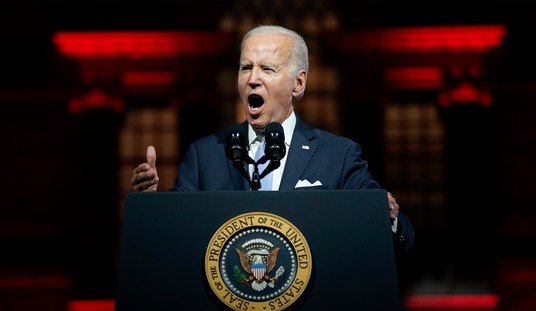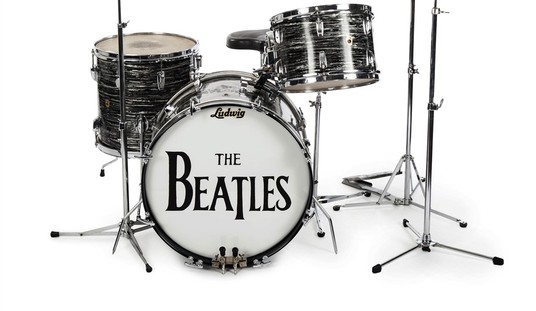
In 1963, when campaigning nearby, George Romney spontaneously joined a civil rights march in the affluent Detroit suburb of Grosse Pointe. Years after his death, Romney is remembered fondly by Michigan residents for his integrity and fiscal prudence.
Let’s do a thought experiment. Imagine Mitt Romney speaking about government spending, social problems, crime, and the failure of our public schools. Now let’s say Mr. Romney, in addressing those issues, said the following:
As a result of the tremendous prosperity in this country and the result of the politicians misusing that prosperity to try and solve problems with just government money, especially social problems, our social problems have exploded. This nation is confronted with unprecedented spiritual and moral and social problems. When kids are having kids and the government’s subsidizing it, and subsidizing it only if the father is out of the home, could you have conceived of that happening 40 years ago? I couldn’t have. When kids are killing kids. When so many kids are going into school, that they’re not ready to learn and when the teacher can only spend about fifteen minutes out of the hour educating, the rest of the time she’s trying to discipline the kids, we’re not going to have an educated set of employees. And one reason we became the most prosperous nation on earth was because we had the best educated populace in the world as the result of public education. Now we’re not even equaling the other industrial nations. We don’t even equal our old level of educational achievement and this, in my opinion, together with the moral and crime and other problems constitute a threat to the future of this nation of an unprecedented character. I think we’re confronted with the most serious challenge since the Civil War.
Would any left-leaning pundits call that a “moderate” speech? Saying that you can’t solve problems with government spending? That America’s social problems are rooted in spiritual and moral flaws? That there’s something wrong with our public education system, now dominated by teachers’ unions, not parents and students? This sounds like a checklist of conservative issues. When you consider the hyperbole about the Civil War, I think that imagining the left-wing commentariat characterizing those remarks as anything other than “extremely right-wing” seems ridiculous.

At a campaign stop during the Michigan primary, Mitt Romney signs a piece of his father George's campaign memorabilia.
“Extremely right-wing” is exactly how Rep. Debbie Wasserman Schultz (D-FL) characterized Mitt Romney when he won Florida’s Republican primary. For years, Mitt had been regarded as a “moderate Republican” in the mold of his late father George, who led American Motors in the 1950s and early 1960s and then went on to become Michigan’s governor and later President Nixon’s cabinet secretary of Housing and Urban Development. The Left has expressed concerns that the younger Romney has abandoned his father’s supposed moderation for a more conservative approach to appease the Right. No sooner did Mitt Romney accept his party’s nomination than Tom Brokaw, playing the role of emeritus anchorman with gravitas during NBC’s convention coverage, opined:
I happened to have spent some time covering his father [Gov. George Romney] and he was a remarkable man of great integrity who fought within this party to make it more moderate and make it less extreme and to make it more inclusive. And the evolution of Mitt Romney, the son, has been to go from being a moderate to be much more conservative.
George Romney was no moderate by today’s standards. He was a staunch fiscal conservative who explicitly denied that he was some kind of a moderate. While he famously embraced the civil rights movement and supported the occasional fiscally conservative Democrat like Paul Tsongas, George Romney took positions on social issues that would make him a rock-solid conservative today.
Yes, he did some things that would trouble today’s conservatives, but so did Ronald Reagan. Romney ran against Barry Goldwater for the Republican nomination in 1964 and didn’t endorse him during the general election campaign. Romney was Nixon’s HUD secretary, which means that he helped grow the federal bureaucracy. That experience, though, made him even more fiscally conservative because of the waste he saw in trying to solve problems with government money. Even before he became Michigan’s governor, he led the rewriting of the state’s constitution to mandate a balanced budget. Though Michigan’s economy has suffered for over a decade, the state government in Lansing never got nearly as underwater as states like California and New York are today.
Just as the press now portrays Mitt as embracing extremely conservative political positions, so too the GOP of the early 1960s now receives an offensive caricature. It’s effective in the current presidential campaign to portray George Romney as more “moderate” and less conservative than he really was so his son Mitt can be cast as the “etch-a-sketch” candidate pandering to his party’s right wing. Part of that involves rewriting history to darken the GOP with a stain of racism and extremism.
The “Mitt Romney has abandoned his father’s moderate ways” narrative seems to rely on two factors: Romney’s refusal to endorse Barry Goldwater for president (and his walking out of the Republican National Convention that year) and the accounts of two of the senior Romney’s close advisers when he was politically active.

Mitt & Scott Romney, seated next to their mother Lenore, watch their father address the Republican National Convention in 1964. Later, Mitt would join his father in walking off the convention floor in protest because a civil rights plank was rejected for the party platform.
It’s true that George Romney and Barry Goldwater had serious policy differences. Romney supported the civil rights movement, while Goldwater, who later conceded his mistake, opposed the 1964 Civil Rights Act on libertarian grounds, claiming that the equal accommodations statutes in the Act violated business owners’ rights to do business with whom they pleased. Romney also criticized the influence of the John Birch Society on the GOP. (Of course, conservative stalwart and National Review founder William F. Buckley also came to hold that position.)
While perhaps by the standards of 1964 George Romney represented what today’s liberals might call the moderate wing of the Republican Party, he’d certainly find common cause with most conservatives today. He considered the Democratic Party, then and now dominated by the labor movement, to be “politically corrupt, morally wrong, economically unsound, and socially indefensible.”
Some wag once suggested that the most successful public relations campaign in history was post-WWII Germans convincing the world that Hitler was Austrian and Beethoven was German. I think that even more successful was the Democrats’ attempt to absolve themselves of their role as the American party of racism, the party of Jim Crow, the party of Dixiecrats, the party whose militant wing known as the Ku Klux Klan used terrorism to rid the South of Reconstruction and black Republican office-holders, the party of eugenics, and the party of Woodrow Wilson (who segregated the American armed forces).
This current presidential campaign has remained rife with accusations by the Left that Republicans utilized coded “dog-whistle” signals to American racists to stir up resentment against Obama. The Republicans’ “Southern strategy” to help elect Richard Nixon in 1968 by appealing to politically conservative “law and order” southerners now returns as the granddaddy of all dog whistles. In the 2012 campaign, I’ve already seen people try to extend the Southern strategy narrative back in time to 1964, to portray the senior Romney as a brave moderate facing racist Republican extremists. The fact that in 1964 the Republican National Convention voted against Romney’s addition of a plank in the party platform supporting civil rights is now seen as the first strains of that Southern strategy.

George Romney was a pioneering advocate of small cars with American Motors' compact Rambler. He referred to the Big 3's products as "gas-guzzling dinosaurs." His acumen saved AMC, allowing it to survive another three decades before it was acquired by Chrysler.
The reason why the GOP in 1964 opposed the civil rights plank in their platform had nothing to do with racism or the Southern strategy, which wouldn’t emerge for years. Barry Goldwater’s libertarian-oriented backers had taken control of the convention and Goldwater opposed the civil rights act on libertarian, not racial, grounds. Freedom of association and property rights make public accommodations laws problematic.
Trying to tie Romney’s dissatisfaction with extremists in 1964 to the “Southern strategy” of Nixon’s campaign in 1968 is anachronistic, to say the least. Remember that the Republican convention in San Francisco in 1964 was before most of the urban unrest in the 1960s. Urban riots plagued America in the mid-to late-1960s, but that trend started when Los Angeles’ Watts neighborhood exploded in 1965, as Detroit did in 1967. While it is possible that race fueled some 1960s rioting, concerns about disorder remained the driving force for conservatives north, south, and west, propelling the embrace of the law-and-order Republicans. In any case, that was long after the 1964 convention in San Francisco.

George Romney ran for president twice, in 1964 and then more seriously in 1968. Richard Nixon later named him secretary of Housing and Urban Development. The senior Romney was deeply concerned about America dividing into rich suburbs and poor cities. In time he gave up the notion that government spending can solve social problems.
Did the Republicans cynically exploit the resentment of some white Southerners at feeling abandoned by the Democrats, who by 1968 had finally gotten on the civil rights bus and had started their hard swing to the left, capped by George McGovern’s nomination in 1972? I’m not naive, so that’s probably true in some cases. However, if you’re going to point to southern Democrats who switched parties like Jesse Helms did in 1970, you’re going to need to account for KKK member Robert Byrd maintaining a home in the Democratic Party as a respected senior statesman, though to my knowledge never explicitly renouncing the Klan.
The problem with the narrative which claims that suddenly in 1964 to 1968 all American racists stopped being blue-dog Democrats and embraced the Grand Old Party is that it’s naive at best, and deliberate revisionism at worst. In 1964, it was the Democratic Party divided over race, not the Republicans. Note that Helms switched parties to become a Republican in 1970, six years after George Romney walked out of the Republican convention in protest over failure to endorse civil rights in the party platform.
Painting the Republican Party of 1964 as racist just doesn’t make historical sense. To begin with, the Republican National Convention of 1964 took place against the backdrop of debate in the U.S. Congress over the foundational legislation for the modern civil rights era, what would become the Civil Rights Act of 1964 and the Voting Rights Act of 1965. Southern Democrats opposed that legislation, tried to filibuster it, and it only passed because of Republican support in both houses. In both the House and the Senate, a much greater percentage of Republicans voted for the Civil Rights Act than the percentage of Democrats who supported the Act. So the notion that southern Democrats embraced the GOP because of Democratic support for civil rights should be mooted at the outset. It’s really not a serious point and it’s completely unsupported by history.
It’s one thing to say that the GOP’s “Southern strategy” was used in 1968, setting aside just what that strategy entailed, but it’s another thing entirely and historical revisionism to say that it existed in 1964 and was a reason for Romney’s disaffection with his party.
Most of the “Mitt’s not the moderate his famous dad famously was” articles eventually get around to using one or two former Romney associates as sources: Walter De Vries and Jonathan Moore. In the early 1960s, De Vries served as George Romney’s chief political strategist. De Vries likes to portray himself as the voice of Republican moderation, but from a recent New York magazine article on George Romney’s abortive campaign for president in 1968 — just one of a series of articles negatively comparing Mitt to his father’s supposed moderate ways — it’s clear that De Vries hasn’t been anywhere near the center of American politics for more than four decades. By the early seventies, De Vries had stopped advising Republicans, had moved to North Carolina, and had gone to work for Democrats. And according to Benjamin Wallace-Wells, not just any Democrats either, but rather “progressive” Democrats.
When Mitt Romney first ran for president in 2007, De Vries started to work on a book comparing Mitt to his father. Peevishly upset over what he saw as Mitt’s turn to the right, De Vries eventually retitled his manuscript “The Political Mitt Romney: Not His Father’s Son.” The manuscript was never published, but De Vries did give it to a liberal Washington Post reporter, the late David Broder. I’m just cynical enough to think that maybe, just possibly, other left-leaning journalists have seen that manuscript.
Nearly every article bemoaning Mitt’s abandonment of his father’s “moderate” or “progressive” Republicanism quotes either De Vries or George Romney’s foreign affairs advisor Jonathan Moore. It’s taken as a matter of fact (however inaccurate it actually is) that George Romney’s comments that military leadership had “brainwashed” him on an earlier visit to Vietnam killed any chance of him getting the Republican nomination in 1968. Moore had an important role in cultivating Romney’s disillusionment over the Vietnam War. Eventually Moore would also leave the Republican Party, voting for George McGovern in 1972 and becoming an academic, heading Harvard’s Institute of Politics. While De Vries and Moore moved leftward, George Romney never moved left with them.
It’s possible that the two former associates of George Romney look back on him through the prism of their own current political affiliations, and project their own disaffection with Republicans onto him. According to Michael Kranish in the Boston Globe, the two men have coordinated their most recent politicking:
The pair have talked for months with each other to try to understand what they consider to be Mitt’s position changes and distancing from his father’s views. De Vries, asked how he thinks George would view Mitt’s positions today, responded: “He’d be horrified. And Mitt would hear from George about it. I can’t understand or comprehend it. … I think a lot of people believe that secretly he is a moderate. I don’t believe that. The right, and particularly the radical right, is going to hold him to what he said”.

George and Mitt Romney on the roof of the General Motors' pavilion at the 1964 New York World's Fair. The huge car in the background is part of Chrysler's display. Behind the senior Romney's arm is the Ford pavilion.
George Romney died in 1995, so he can’t speak to Moore and DeVries’ version of events and their opinions. We do, however, have his words. We know what he said to that American Motors club in 1994, taking a position that Moore and DeVries would undoubtedly characterize today as conservative. More definitively there is also a comment that George Romney himself said when giving an oral history in 1992: “I never considered myself a moderate.”
Endnote: This essay touches on the subject of manipulating the historical image of George Romney. To further research Romney’s own words, I contacted Michael Kranish at the Boston Globe, asking him where I can find a transcript or recording of Romney’s 1992 oral history that Kranish had quoted in his article comparing Mitt to his dad. I write about cars for a very popular and influential car site, The Truth About Cars, and also edit Cars In Depth, the original 3D car site. Because of the entanglement of government and the auto industry it’s impossible to avoid talking about cars and politics sometimes. While I try to keep my personal politics out of what I write for TTAC, I have absolute freedom to talk about whatever I wish over at Cars In Depth. It’s just as easy for Mr. Kranish to figure out my political leanings as it is for me to figure out his. So far he hasn’t responded to my request.









Join the conversation as a VIP Member